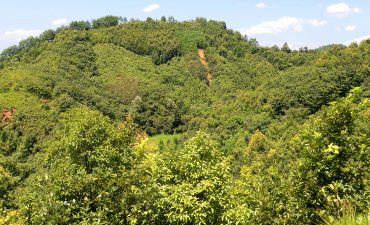Canopy protects forest organisms from global warming
For every visitor to the forest it is comprehensible that the temperatures in the forest are lower than in the open country or in the city, especially in summer. For scientific studies on climate change, the data on temperatures are collected from weather stations, which are usually located in open fields. However, a large proportion of all terrestrial species live in forests. There, they often live in understorey or in the ground, which is why climate data from open fields are only of limited use to them.
Now, an international research team led by the Swiss WSL and the University of Cambridge has for the first time determined the climate warming under the canopy. To do this, the scientists measured the temperature inside the forest at 100 locations and combined this with a computer model containing data on the tree crown density of the forest going back up to 80 years. These included almost 3000 sites from long-term observation programmes.
The denser, the cooler
The result: the global warming measured in the open field does not adequately reflect the temperature development under the leaf canopy. The denser the canopy, the stronger is its cooling effect in the understorey and on the forest floor.
Now forest organisms have an optimum temperature, i.e. the temperature at which they develop best, which is significantly below the temperatures actually measured. This means that they are lagging behind in adapting to the climate. This means that a loss of the protective treetops – whether caused by nature or by humans – means an additional, drastic warming for the plants growing below, for which they are ill-prepared. Given the expected increase in summer heat waves in Europe, this is likely to change forest biodiversity in the coming decades.
Comment
The growing demand for wood in the world, for example through the use of energy wood, is increasing the pressure on forests. Increased fellings massively reduce tree crown density and thus change the microclimatic conditions that are vital for many species. This greatly alters the number and composition of forest biodiversity, which is, however, crucial for many ecosystem services and livelihoods. Forest management adapted to climate change must take these interrelationships into account in order to ensure that stands are resilient in the future and that species loss does not continue. A strong thinning of the stands so that precipitation reaches the soil is counterproductive here and can contribute to species loss.
Source
Forest microclimate dynamics drive plant responses to warming: Florian Zellweger et al. Science 15 May 2020:Vol. 368, Issue 6492, pp. 772-775, DOI: 10.1126/science.aba6880


